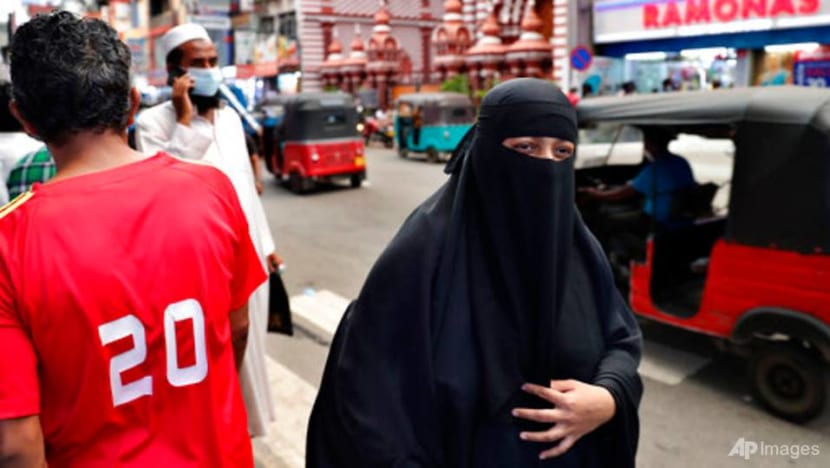Sri Lankan Cabinet approves proposed ban on burqas in public

A Sri Lankan Muslim woman walks in a street of Colombo on Saturday, Mar 13, 2021. (File photo: AP/Eranga Jayawardena)
COLOMBO: Sri Lanka's Cabinet on Tuesday (Apr 27) approved a proposed ban on wearing full-face veils including Muslim burqas in public, citing national security grounds, despite a United Nations expert's comment that it would violate international law.
The Cabinet approved the proposal by Public Security Minister Sarath Weerasekera at its weekly meeting, Weerasekara said on his Facebook page.
The proposal will now be sent to the Attorney General's Department and must be approved by Parliament to become law. The government holds a majority in Parliament, and the proposal could easily be passed.
Weerasekara has called burqas, a garment that covers the body and face worn by some Muslim women, a sign of religious extremism, and said a ban would improve national security.
READ: Sri Lanka to take time to consider proposed ban on burqa
READ: Sri Lanka to ban burqas, close more than 1,000 Islamic schools
The wearing of burqas was temporarily banned in 2019 after Easter Sunday suicide bomb attacks killed more than 260 people.
Two local Muslim groups that had pledged allegiance to the Islamic State group were blamed for the attacks at six locations - two Roman Catholic churches, one Protestant church and three top hotels.
Last month, Pakistani Ambassador Saad Khattak tweeted that a ban would hurt the feelings of Muslims. The UN special rapporteur on freedom of religion or belief, Ahmed Shaheed, tweeted that a ban would be incompatible with international law and the right to free religious expression.
Muslims make up about 9 per cent of Sri Lanka's 22 million people, with Buddhists accounting for more than 70 per cent. Ethnic minority Tamils, who are mainly Hindus, comprise about 15 per cent.












